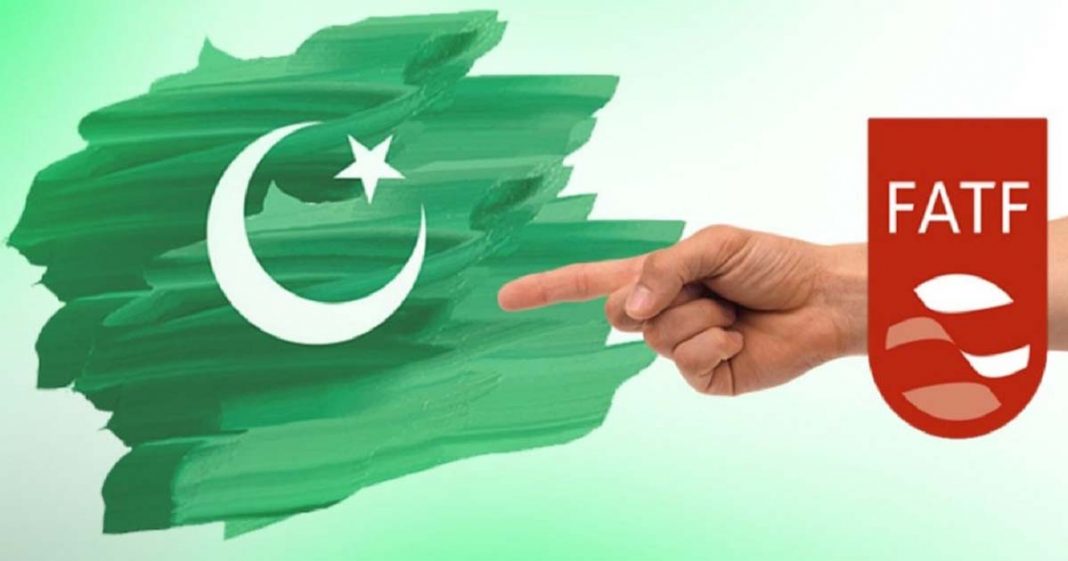The president on the Financial Action Task Force yesterday announced that Pakistan would be staying on the ‘grey list.’ The announcement comes as a relief since it was feared that Pakistan could end up on the ‘blacklist’ which would have had serious repercussions against the country’s financial capabilities.
The FATF President Marcus Pleyer also announced that Pakistan had successfully complied with 21 out of 27 points that it had to comply with in order to come out of the ‘grey list.’ Pakistan has been given until February 2021 to comply with the remaining 6 points.
Pakistan has already significantly completed the remaining 6 points and will likely exit the grey list in February next year.
The FATF an international body fighting terror financing
The FATF is an inter-governmental body established in 1989 to combat money laundering, terrorist financing, and other related threats to the integrity of the international financial system. It currently has 39 members including multiple regional organizations such as the European Commission and Gulf Cooperation Council, and the Asia Pacific Group.
The FATF had placed Pakistan on its grey list in June 2018 and had asked Islamabad to implement the action plan by the end of 2019 but later extended the deadline because of the Covid-19 pandemic and delay on part of the country to meet the requirements.
The country was to comply with the 27 points highlighted by the FATF. Some international media reports claim that the country has complied with the points related to money laundering. However, the remaining six points pertain to terrorism financing.
The International Cooperation Review Group of the FATF has acknowledged that Pakistan had complied with 21 points of the action plan, the report said.
False and baseless media propaganda
Notably, Pakistan’s Foreign Office has categorically dismissed the “false and baseless” media reports alleging that Saudi Arabia voted against Pakistan in the ongoing plenary of the FATF.
“Pakistan and Saudi Arabia enjoy strong fraternal ties and the two countries have always cooperated with each other on all matters of bilateral, regional and international importance,” said the spokesperson.
That's a wrap! The FATF plenary has concluded. Delegates from governments from around the world discussed a range of money laundering and terrorist financing issues. See the outcomes of the plenary here➡️https://t.co/yRkUALYfYn #FollowTheMoney pic.twitter.com/foWHdVAzrI
— FATF (@FATFNews) October 23, 2020
The FO spokesperson called the report “malicious propaganda” and clarified that Pakistan greatly values its relations with Saudi Arabia.
Read more: A Pakistani agent in Washington, an American mole in Islamabad
“FATF will announce its assessment of Pakistan’s progress on the Action Plan and the future course of action after the conclusion of its Plenary Meeting”.
What measures Pakistan has taken thus far?
Pakistan has never shrugged off implementing the Action Plan proposed by the FATF. By December 2019, Pakistan registered 827 cases of terror financing. Likewise, a significant increase of 667 percent increase was made in arresting the terror-fiancing culprits. Moreover, the penalty rate to the culprits has also been increased by 403 percent, local media reported.
In addition to it, the State bank of Pakistan has also successfully hampered the terror-financing and exploring those accounts used in terror financing. Moreover, it has adopted for the first time blockchain technology to counter the illegal Hawala and Hundi system at the international level.
Pertaining to religious seminaries in Pakistan, Islamabad had also its provided a report to the Financial Action Task Force, apprising the global watchdog of its compliance with 22 of the remaining points in its ambitious action plan. 113 madrassas across the country are now under the complete administrative control of the Federal government, the interior minister said.
In the October 2019 plenary meeting, Pakistan was declared fully compliant on five measures which are (1) understanding risks of counter financing terrorism (CFT) by the financial sector (2) outreach sessions of Anti Money Laundering (AML) and CFT for the financial institutions (3) developing an integrated database at airports (4) mechanism to publicize designated persons and entities and (5) Terrorist Financing (TF) specific units and analysis done by Financial Monitoring Unit (FMU) and State Bank of Pakistan (SBP).
Pakistan passes more laws to come out of the grey list
On September 17, the Anti-Money Laundering (Second Amendment) Bill and the Anti-Terrorism Act (Amendment) Bill were recently passed by the parliament. .The Anti-Money Laundering (Second Amendment) Bill, 2020 is aimed at streamlining the existing anti-money laundering law in line with international standards prescribed by the FATF.
The Anti-Terrorism (Third Amendment) Bill has inserted Section 19-C in law relating to the application of investigation techniques. It gives spying powers to the investigators and allows them to conduct the undercover operation, intercept communication, and access computer systems with the permission of the court.
Opposition blackmailed the government over the proposed amendments to anti-terror and anti-money laundering laws, said Prime Minister Imran Khan said in an interview.
Read more: APS Terrorism: Pakistan’s 9/11
PM Imran further maintained that the troubles of Pakistan at the FATF were a direct result of Indian interference at the body. “The FATF pressure on Pakistan to tighten laws is part of an effort by India to cripple the Pakistani economy,” he said. “If Pakistan is pushed into the FATF blacklist, there would be serious economic consequences. The dollar would skyrocket and it would be difficult to import or export things to and from Pakistan.”
GVS News Desk














